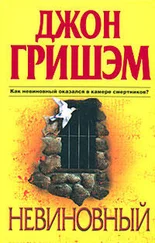They finally agreed to cut one center and one forward. Samuel Sooleymon was the last player chosen, though he would never know it.
The players did know that some serious roster trimming was under way. Eight of their friends had vanished, their lockers and rooms cleared. Who would be Ecko’s last two victims? As they played foosball, shot pool, and looked at girls in the student center, they laughed and joked about who might be next. But it was a nervous laughter.
Coach Lam’s favorite restaurant in Juba was Da Vinci’s, a place known for good food and even better views. It sat practically on the Nile River, on the eastern edge of town, and most of its tables were outside on a deck beside the water. He arrived first with a van loaded with five players and they followed him to a secluded corner of the deck where he congratulated them on making the team. Moments later, the two assistants arrived with the other five, and when the boys realized that they had been chosen they wanted to celebrate. Their frayed nerves were finally put at ease.
Samuel had convinced himself that his long ride back to Rumbek would be a dreadful one. He had tried to imagine the pain of telling his family and friends that he didn’t make the cut. They would be crushed and he would never get over the disappointment. Now, however, the future was glorious again. He was headed to the U.S. to play basketball against the world while a hundred head coaches watched intently and their assistants filmed every move. He would proudly carry the dreams of his people on his broad shoulders and soar, just like the great Niollo.
The players and coaches sat around a long table and ordered soft drinks and juice. The mood was joyous and every conversation was about the trip, from the airports and jets, to the long flights, to the hotels and amusement parks, to the games and the arenas and all those scouts. Were they really going to Disney World?
It was Ecko’s third Under 18 team to take to the U.S., and he reveled in their excitement.
At seven Monday morning, a van left the dorm again as Ecko took four of his new players to the bus station. He parked in a gravel lot outside the bustling terminal and took the boys to the rear door of the van. He handed each a handsome vinyl gym bag with the South Sudanese flag brightly embroidered on both sides. “Inside you’ll find a new basketball, some practice tee shirts and shorts, along with some caps and other goodies. Before we leave in July, you’ll be fitted for new shoes, but that comes later.”
He walked them inside and said goodbye to each with a warm embrace. They thanked him again and again, and they hugged each other, said goodbye again, and got lost in the crowds.
Samuel’s bus to Rumbek left at 8:30, only half an hour late. It was not crowded and he had an entire seat to himself, for the moment. Beside him was his old duffel and his shiny new gym bag, which he continually checked on. It was already hot and the bus inched along in city traffic. Once again, Samuel marveled at the city noise — the relentless horn-blowing, the angry shouts, the friendly greetings, the rattle and roar of old engines, the sirens. Finally, the bus picked up speed as the traffic thinned and they left the central city. The road was still asphalt as they passed through the shantytowns but soon became gravel.
Suddenly, the bus stopped, its passenger door jerked open, and three smartly dressed and armed government soldiers hopped on board. They wore identical khaki uniforms, maroon berets, shiny black boots, and all three had the same cocky smirk that was expected. Each carried a Kalashnikov rifle, or a Kallie as they were called in many parts of Africa. Samuel immediately recognized the weapon because there were so many of them in his country.
The soldiers glared at the passengers — the usual collection of harmless peasants, students, commuting workers — and didn’t like what they saw. They ordered the first two rows cleared and sat down. One barked at the driver to proceed, and the bus was off again.
It was not at all uncommon for government soldiers to hop a ride on the buses. They were given priority and no one objected. They expected to be accommodated and had the weaponry to get what they wanted. But their presence could mean something far more ominous than simply catching a ride from here to there. It was not uncommon for the military to accompany buses into the rural areas where bandits thrived and guerrillas waited to attack.
After half an hour it was obvious, at least to Samuel, that the soldiers were not just along for the ride. They were on high alert, watching the road, the traffic, the settlements, the trails. They whispered among themselves. One talked on a satellite phone. Cellular service outside of Juba was scarce and unreliable.
The bus stopped in a village and four passengers got on as one got off. Minutes later they were back in the bush, the gravel road dry and dusty, the sun baking the fields and woods.
The ambush happened so fast it must have been carried out by experienced thieves. An open cargo truck suddenly appeared from a dirt trail in a bend and blocked the road.
The bus driver said, “This is it!” He hit the brakes and the bus rocked to a halt.
The soldiers lowered their heads, clutched their Kallies, and prepared to attack. One yelled at the passengers, “Heads down! Everyone!” Two crouched by the driver. The third moved to the rear and put his hand on the door latch.
Then, the sickening sound that was all too familiar. The Tak-Tak-Tak-Tak of an assault rifle. Samuel ducked even lower but was still watching. The leader of the gang was in the middle of the road firing at the sky. Beside him were two others, just boys, probably Samuel’s age or younger, dressed in their best imitation of real soldiers, a hodgepodge of leather ammo belts and guns on both hips, along with their rifles. One wore a white cowboy hat. One had on basketball shoes. They swaggered toward the bus, all three yelling threats, as two others hustled to the rear of the bus.
A soldier squatting inside the front door said, “Go,” and all hell broke loose. The driver opened the door and two soldiers rolled out and landed on their knees with Kallies blazing. The thieves were stunned and their hesitation cost them their lives as the better-trained government soldiers wiped them out. At the same moment, the third soldier kicked open the rear door and shot the two thugs at near point-blank range.
The gunfire lasted only seconds, but it was horrifying nonetheless. One of the bandits managed to spray the front of the bus and shatter the windshield before going down, and the sounds of exploding glass and ricocheting bullets hung in the air long after the shooting stopped. Samuel, head still low, quickly checked on the other passengers. “No one’s hurt,” he yelled to the driver. He walked to the front, looked through the pockmarked windshield, and saw a sickening scene that he would never forget.
A boy of no more than twelve was walking from the cargo truck toward the soldiers. He held a rifle with both hands, high above his head, as if to surrender. He was frightened and may have been crying. A soldier ordered him to lay down the weapon and he did so. He fell to his knees, touched his fingertips to his chin, and begged for his life. The two soldiers stood over him. One kicked him in the face and knocked him flat, facedown. The other raised his Kallie and fired away, strafing the boy’s back and head. Tak! Tak! Tak! Tak!
When all was quiet, the passengers cautiously lifted their heads and watched as the soldiers cleared the road, then dragged the six dead bodies to the cargo truck and piled them together near the fuel tank under the driver’s seat. In no hurry, they searched through all pockets and kept the money and valuables. They confiscated their weapons and found two sat phones in the cab. They turned a valve, drained the diesel from the tank, and let it run over the dead bodies. One soldier ripped off a tee shirt from a corpse, soaked it with lighter fluid, and wrapped it around a large rock. They backed away, lit the tee shirt, and tossed it at the cargo truck. Whoosh! The noise startled even the soldiers and they stepped back again. The fire roared and engulfed the truck and sent thick, black exhaust boiling upward. Flames shot from the dead bodies as the clothing caught fire, then the flesh began sizzling.
Читать дальше












